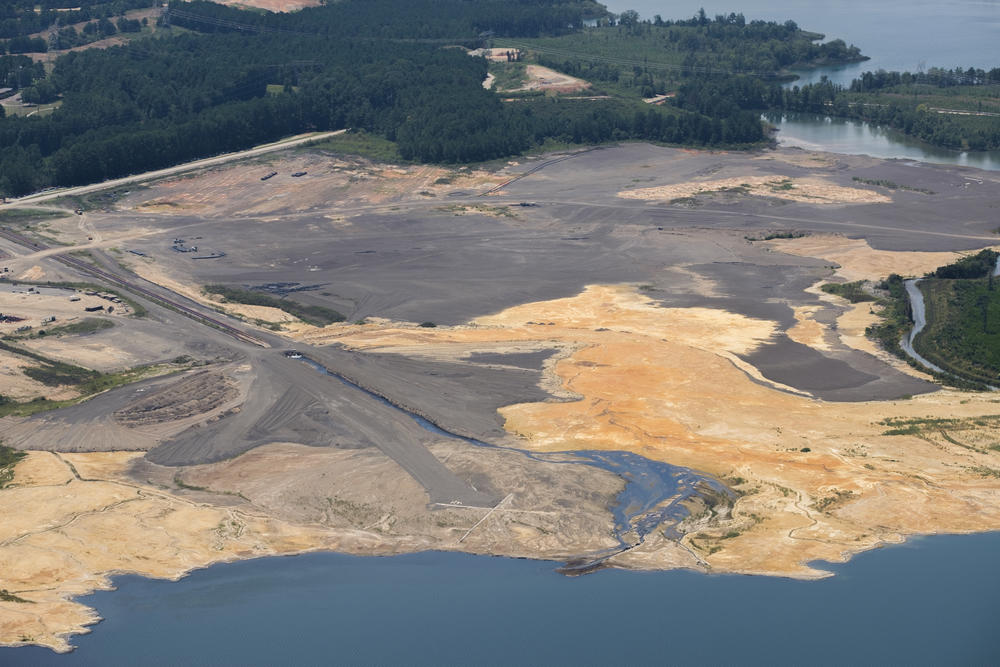
ATLANTA – Georgia Power’s plan to close in place some of its coal ash ponds violates a federal rule prohibiting ash to be in contact with groundwater, an environmental consultant said this week.
Mark Quarles, a senior consultant with Chicago-based BBJ Group, testified before the Georgia Public Commission (PSC) during three days of hearings on a plan the utility submitted in January outlining the mix of energy sources it intends to rely on for power generation during the next 20 years.
Georgia Power’s 2022 Integrated Resource Plan (IRP), which is updated every three years, calls for the company to continue phasing out its fleet of coal-burning plants and step up its investment in natural gas and renewable energy.
With the coal plants being retired, the utility plans to spend $9 billion to close all 29 of its ash ponds at 11 coal-burning power plants across Georgia. While ash is be excavated and removed from 19 of the ponds, the other 10 are scheduled to be closed in place.
Coal ash contains contaminants including mercury, cadmium and arsenic that can pollute groundwater and drinking water as well as air.
The U.S. Environmental Protection Agency (EPA) announced in January it intends to enforce a 2015 rule prohibiting utilities from dumping ash generated by coal-burning power plants into unlined ponds.
Any pond closures that allow coal ash to be in contact with groundwater violate the federal rule, Quarles testified Thursday.
“Groundwater contamination is common and widespread at [Georgia Power] disposal areas,” he said. “The company commonly built large unlined impoundments in streams.”
Specifically, Quarles cited a 343-acre pond at Plant Wansley in Heard County, which he said contains more than 16 million cubic yards of waste. Another 550-acre pond at Plant Scherer in Monroe County contains more than 15 million cubic yards of waste, he said.
“Improper closures by the company create significant risk to ratepayers and create unnecessary costs for the company,” he said.
Quarles said Georgia Power to its credit decided recently to excavate and remove ash from one of the ponds at Plant Wansley. He said that should serve as a model for other ash ponds.
Brandon Marzo, a lawyer representing Georgia Power at this week’s hearings, said the PSC approved the utility’s plan for closing ash ponds as part of its 2019 IRP.
Under both federal and state rules, closing ponds in place is considered equally protective as excavating and removing the ash, he said.
Marzo also cited a document prepared by the state Environmental Protection Division (EPD) asserting that closing ponds in place in unstable areas is permissible “if recognized and generally accepted engineering practices have been incorporated.”
The Georgia Power lawyer noted the EPD already has approved such a closure plan for an ash pond at Plant Bowen near Cartersville, where a foundation improvement plan was developed to prevent leakage.
But Quarles said the closure plan for Plant Bowen, site of the largest Georgia Power’s largest ash pond, is unique among the utility’s ponds.
Marzo also argued the description Quarles gave of the ash ponds at plants Wansley and Scherer does not represent the most recent information about those sites furnished by the EPD.
“It’s not what the ponds would look like after closure in place is completed,” he said.
The PSC will vote on Georgia Power’s 2022 IRP this summer.
This story is available through a news partnership with Capitol Beat News Service, a project of the Georgia Press Educational Foundation.
